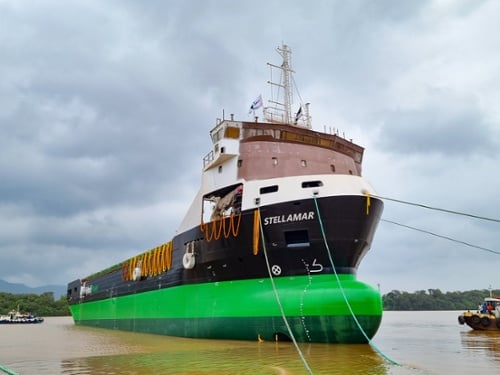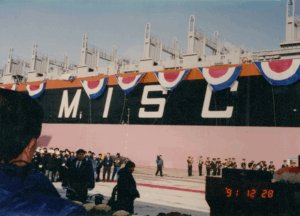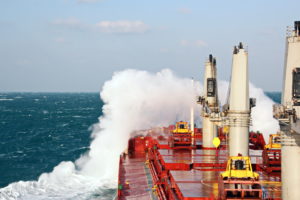
Swedish shipowner AtoB@C Shipping, a subsidiary of Finnish ESL Shipping, and Helsinki-headquartered stainless steel producer Outokumpu have sealed a new contract covering an increased share of the import and export shipments from Outokumpu’s Tornio steel mill in Northern Finland.
The two companies target with this contract a significant reduction of carbon emissions from Outokumpu’s sea transports, which is in line with both companies’ ambitious emission reduction targets for 2030.
AtoB@C Shipping’s new energy-efficient Green Coaster–hybrid vessels will play a key role in reducing emissions, as the company explains.
The vessels are equipped with the latest technology and together with improved efficiency in Outokumpu’s supply chain they are estimated to reduce voyage emissions by 40% per transported cargo ton compared to the present vessel generation, it mentions.
Furthermore, the companies plan to implement Virtual Arrival as a standard operational method whenever possible.
Virtual Arrival allows ships to adjust their speed according to the availability of berths at the destination port without losing their place in the port line-up.
On average, Virtual Arrival has reduced voyage emissions in AtoB@C Shipping’s traffic by 10% in the voyages it has been applied for, the shipowner pointed out.
Frida Rowland, commercial director of AtoB@C Shipping & ESL Shipping, said: “We are delighted to continue our cooperation with Outokumpu and develop more sustainable shipping practices together. Our new Green Coasters demonstrate our commitment to reducing emissions at sea and meeting our client’s expectations for greener shipping solutions.”
Jyrki Sandelin, category manager Outokumpu procurement – transport, noted: “We are very happy to find a partner who has ability to help us in reducing shortsea shipping emissions on our journey to achieve our ambitious overall science-based target to reduce direct and indirect emissions by 42 % per ton of stainless steel by 2030 from 2016 baseline. This will also help us at one hand to follow tightening regulations from EU and IMO and on the other hand keep our costs in control.”


